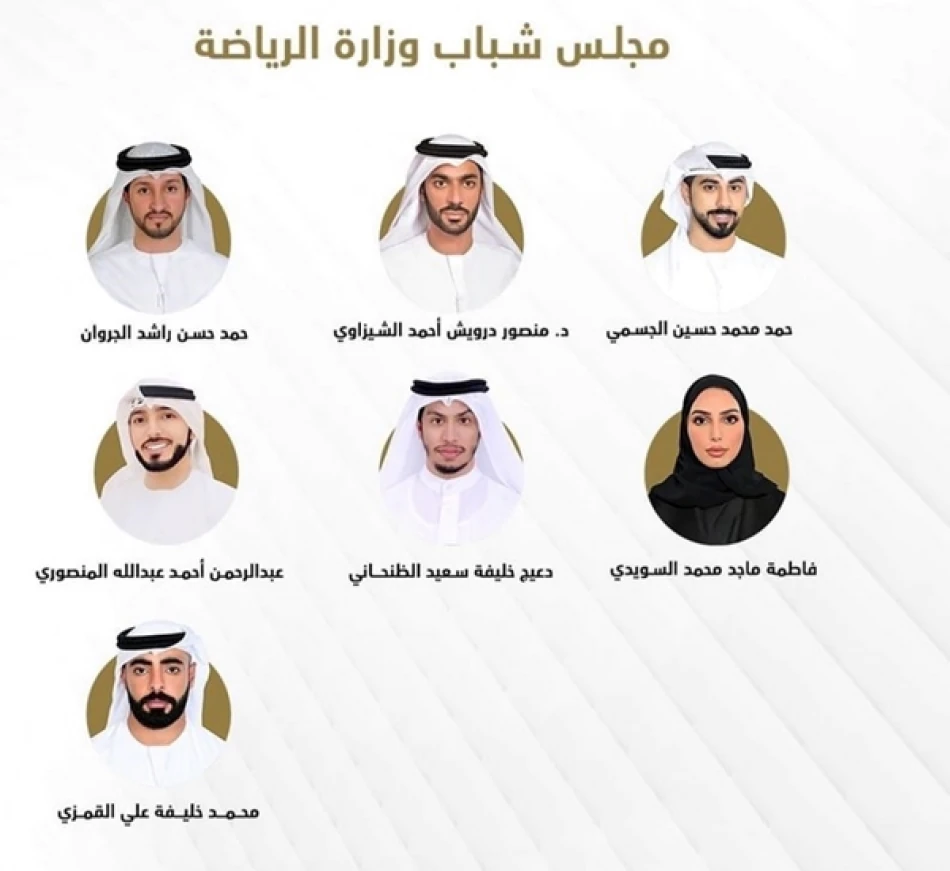
Sports Ministry Announces Formation of Youth Council: Empowering the Next Generation
UAE Sports Ministry Launches Youth Council to Shape National Athletic Future
The UAE Ministry of Sports has established a dedicated Youth Council aimed at amplifying young voices in national sports development, marking a strategic shift toward youth-driven innovation in the country's ambitious athletic sector. The announcement, timed with International Youth Day, reflects the Emirates' broader commitment to positioning young Emiratis as leaders across key economic sectors.
Strategic Vision Behind the Youth Integration
The newly formed council represents more than ceremonial youth inclusion—it signals a fundamental approach to sports governance that prioritizes fresh perspectives and innovative thinking. Dr. Ahmed Balhoul Al Falasi, Minister of Sports, emphasized that the council embodies institutional confidence in youth capabilities to drive excellence and sustainability in the sports sector.
This initiative aligns directly with the UAE's National Sports Strategy 2031 and the broader "We the UAE 2031" vision, both of which prioritize diversification and excellence across multiple sectors. By integrating youth voices into sports policy-making, the UAE follows a pattern seen in other forward-thinking nations that recognize demographic advantages in strategic planning.
Council Structure and Leadership Framework
The council operates under the leadership of Hamad Hassan Rashid Al Jarwan as Chairman, with Dr. Mansour Darwish Ahmed Al Shizawi serving as Vice Chairman. The membership includes representatives from various ministry departments, ensuring cross-functional input on sports development initiatives.
This structure creates direct communication channels between young professionals and senior leadership, potentially accelerating decision-making processes and ensuring policies reflect contemporary perspectives on sports engagement and development.
Regional Context and Competitive Positioning
The UAE's youth council initiative reflects broader regional competition for sports prominence and economic diversification. As neighboring countries invest heavily in sports infrastructure and events, the Emirates' focus on human capital development through youth engagement offers a distinctive competitive advantage.
Similar youth integration models have proven successful in Singapore's sports development programs and various European sporting federations, where young professionals have contributed to digital transformation and athlete engagement strategies.
Innovation Catalyst for Sports Sector Growth
The council's mandate extends beyond traditional advisory roles to actively fostering innovation within national sports institutions. This approach addresses a critical gap in many sports organizations where established practices may not fully leverage digital technologies or contemporary athlete development methodologies.
Chairman Al Jarwan noted that the council serves as a strategic vehicle for ensuring youth voices reach decision-makers, potentially accelerating the adoption of innovative approaches to athlete development, fan engagement, and sports infrastructure utilization.
Implications for UAE's Sports Economy
This youth integration strategy positions the UAE to better capitalize on its significant sports infrastructure investments, including world-class facilities and international event hosting capabilities. By ensuring young perspectives influence policy development, the country may achieve more effective utilization of these assets while building sustainable sports industry growth.
The timing suggests preparation for increased sports sector activity as the UAE continues positioning itself as a global sports hub, competing with established markets while leveraging its unique geographic and economic advantages in the region.
Most Viewed News

 Layla Al Mansoori
Layla Al Mansoori






